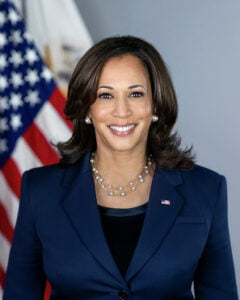How storytelling has shaped our history and impacted your self-perception

Storytelling has been an integral part of human communication for thousands of years, shaping our history and our perception of the world. But beyond its cultural and social significance, storytelling has also been the subject of scientific research, with studies showing that it can have a profound impact on the brain and our behavior. In fact, according to research conducted by neuroscientists, storytelling can stimulate the brain in ways that traditional communication methods cannot, leading to greater engagement, comprehension, and retention of information.
In this article, we will explore the power of storytelling and its impact on our history and our perception of the world, as well as how technology is changing the way we tell stories in the digital age.
Table of Contents
Storytelling in the modern world: why there is little evidence of women making history
Storytelling in shaping our understanding of the world. When we look at the historical record, it is clear that certain stories have been privileged over others, particularly those of men.
Throughout history, women’s stories have often been overlooked or marginalised. There is little evidence of women making history when compared with men simply because their stories were not recorded or were actively suppressed. As a result, our understanding of history has often been incomplete or skewed towards a male perspective.
There have been many women throughout history who have made significant contributions to their time and society impacting the world at large, despite the fact that their stories may not have been widely known or celebrated. But imagine where would be now should their stories been shared? The truth is that nobody makes history but your story does. Thinking of the difference a woman’s perspective can make in human history, Mary Seacole comes to mind. While the statue of Mary Seacole across from the Houses of Parliament in London honors an exceptional woman, its significance reaches far beyond that.
It’s a symbol of the countless remarkable women whose stories were buried with them in early graves, forgotten by history. Mary Seacole’s story is both beautiful and heartbreaking, a testament to her resilience and bravery in the face of adversity. It took a lot of effort to put the wrong right but thanks to the dedication of a passionate group of amazing people was able to recognize and honor Seacole’s legacy with this statue, a feat that took 100 years and £500,000 to achieve.
Ada Lovelace, a 19th-century mathematician and writer who is considered by many to be the world’s first computer programmer. Lovelace’s work on Charles Babbage’s Analytical Engine, a precursor to the modern computer, was groundbreaking, but her contributions were largely forgotten for many years after her death.
Another example is Malala Yousafzai, a Pakistani activist for girls’ education who survived a gunshot wound to the head by the Taliban. Yousafzai’s courage and advocacy for education have inspired millions of people around the world, but it is likely that her story would not have been heard if not for the efforts of those who recorded and shared it.
These examples illustrate the importance of storytelling in shaping our understanding of history and the world around us. By sharing stories of women’s contributions to society, we can broaden our understanding of what it means to make history and inspire future generations to continue the work of those who came before us.
The simple truth is that nobody makes history but your story does. I hope these examples are a reminder of the role that storytelling plays in shaping our understanding of the world. While there is little evidence of women making history when compared with men, this is largely due to the fact that their stories have often been overlooked or marginalized. By recording and sharing the stories of women who have made significant contributions to society, we can work towards a more complete and inclusive understanding of history.
Why do we tell stories and what is the power within storytelling?
Humans have been telling stories for thousands of years. From the earliest cave paintings to the latest blockbuster movies, stories have been an integral part of human culture. But why do we tell stories? What power lies within storytelling?
At its core, storytelling is a way of communicating ideas, emotions, and experiences. It is a way of sharing our understanding of the world with others and of connecting with them on a deeper level. Whether we’re telling a bedtime story to a child or recounting a personal experience to a friend, storytelling helps us to make sense of our lives and our place in the world.
National Geographic photographers, filmmakers, cartographers, and illustrators understand the power of storytelling better than most. For them, storytelling is not just a way of communicating information, but a way of inspiring curiosity, fostering empathy, and sparking a sense of wonder in the world around us.
Through their work, they have come to understand that storytelling is not just about what we say, but also about how we say it. The use of creativity and imagination is invaluable when it comes to communicating complex topics, as it allows us to engage with our audience in new and exciting ways.
For example, a map can be much more than just a tool for navigation; it can also tell a story about the history, culture, and geography of a particular place. A photograph can capture a moment in time, but it can also convey a powerful message about the human condition. A film can transport us to another world, but it can also help us to better understand our own.
The power of storytelling lies in its ability to inspire, to educate, and to transform. It allows us to see the world through someone else’s eyes, to empathize with their experiences, and to find common ground with them. It helps us to make sense of our own lives and to connect with others in meaningful ways.
In conclusion, storytelling is a fundamental part of what it means to be human. It allows us to share our experiences, our emotions, and our understanding of the world with others. Through creativity and imagination, we can use storytelling to communicate complex topics and inspire others to see the world in new and exciting ways. Whether we’re telling a bedtime story or creating a masterpiece of art, storytelling has the power to transform us and the world around us.
What impacts your self-perception
Stories have been an integral part of human communication since the dawn of time. From ancient myths and legends to modern-day books and movies, stories have the power to captivate us and transport us to different worlds.
This rewiring can have long-lasting effects on our brains. For instance, studies have shown that children who are read to regularly have higher levels of neural activity in the areas of the brain associated with language development and comprehension. Similarly, adults who regularly engage with literature and other forms of storytelling have been found to have better cognitive functioning and emotional regulation.
Albert Einstein once said, “Imagination is more important than knowledge.” This statement may seem counterintuitive at first, as we often value knowledge as the key to success and progress. However, upon closer examination, Einstein’s words reveal a deeper truth about the power of imagination.
Knowledge is certainly valuable, but it is limited by what we already know. It is based on facts and evidence that have been gathered through observation and experience. Imagination, on the other hand, has no such limits. It allows us to think beyond what we already know, to explore new ideas and possibilities, and to create new solutions to problems.
Without imagination, many of the greatest advancements in science, technology, and the arts would never have been possible. From the discovery of penicillin to the invention of the internet, all of these achievements were the result of someone daring to imagine something that had never been thought of before.
Imagination plays a crucial role in personal growth and development. It allows us to envision a future that is different from our present reality, and to work towards making that vision a reality. Without imagination, we might feel stuck in our current circumstances, unable to see a way forward.
In many ways, imagination is the engine of progress. It drives us to dream big, to take risks, and to push the boundaries of what is possible. It is what inspires us to create art, to tell stories, and to explore the mysteries of the universe.
While knowledge is certainly important, it is imagination that allows us to transcend our current limitations and to achieve great things. Whether you’re a scientist, an artist, or just someone trying to make a better life for yourself, cultivating your imagination can help you to see the world in a whole new way, and to achieve things you never thought possible.

Wired for storytelling- what shapes your self-perception
Storytelling is an ancient art form that has been used by humans to communicate, teach, and entertain for thousands of years. Stories are not only a form of entertainment but also a way to convey meaning and values, and they have played a crucial role in shaping our history and your self- perception of the world.
Our brains are wired for narrative and this fascinating topic has been explored by researchers in various fields, including neuroscience, psychology, and anthropology. These studies have shown that our brains are naturally wired to process and remember information in the form of stories, rather than disconnected facts or data.
One reason for this is that stories engage multiple regions of the brain, including those responsible for language processing, sensory experiences, and emotional responses. When we hear a story, our brains create mental images and simulate the experiences being described, which allows us to feel a sense of immersion and connection with the narrative.
Another factor is that stories provide a sense of coherence and meaning to our experiences. By organizing events into a narrative structure, we are able to make sense of the world around us and create a sense of order and predictability in our lives. This is particularly important for our sense of identity and sense of self, as stories allow us to create a coherent narrative of our own lives and experiences.
Furthermore, stories have been used for thousands of years to transmit cultural knowledge and values from generation to generation. This is because stories are memorable and easy to retell, which makes them an effective way to pass on important information and traditions.
In today’s world, storytelling continues to play a crucial role in our lives. From advertising campaigns to political speeches, stories are used to persuade, entertain, and inform us. By understanding how our brains are wired for narrative, we can harness the power of storytelling to communicate more effectively and connect with others on a deeper level.
Our brains are naturally wired for narrative, and this has important implications for how we process information and make sense of the world around us. By embracing the power of storytelling, we can enhance our communication skills, deepen our understanding of ourselves and others, and create a more meaningful and connected world.
Creating future memories: the challenges of storytelling in the digital age
Some of the challenges of storytelling in the digital age include the overwhelming amount of information available online, the short attention spans of modern audiences, and limiting your imagination as a direct consequence of social conditioning.
Creating future memories using the data we collected from history and the stories that shaped our perception of the world through storytelling is an emerging field of research that holds great promise for the future of storytelling. By using data analysis and machine learning algorithms, researchers can analyze vast amounts of historical data and extract the underlying narrative structures that have shaped our cultural and societal norms over time.
These narrative structures can then be used to create new stories that are specifically designed to shape our perceptions of the future. By understanding the underlying narrative structures that have shaped our past, we can use this knowledge to create stories that resonate with our deepest desires, fears, and hopes for the future. This can lead to the creation of new cultural and societal norms that are more aligned with our values and aspirations.
For example, imagine a future where climate change is no longer a threat to our planet. By analysing the narrative structures that have shaped our understanding of environmental issues in the past, researchers can create new stories that inspire us to take action and work towards a more sustainable future. These stories can be told through various mediums such as film, literature, and visual arts, and can help to create a new narrative that shapes our perception of what is possible and desirable in the future.
Creating future memories through storytelling is about using the power of narrative to inspire us to create a better future. By analysing the stories that have shaped our perception of the world in the past, we can create new stories that resonate with our deepest aspirations for the future. This can help us to imagine a better world and work towards creating it together.
Creating future memories using the data we collected from history and the stories that shaped our perception of the world through storytelling is an exciting field of research that holds great promise for the future. By using data analysis and machine learning algorithms, we can create new stories that inspire us to work towards a better future and create a world that is more aligned with our values and aspirations.
Storytelling has been a fundamental part of human communication and has played a crucial role in shaping our history and our perception of the world. Its power to create emotional connections, convey complex ideas, inspire action, and create a sense of community has been recognized throughout human history and will continue to be a vital part of our lives in the future. Why not pen your own story and put your name on it and experience how your self-perception changes not only the world around you but within?

FAQs
- What are some of the most famous examples of storytelling in history? Some of the most famous examples of storytelling in history include the epic poems of ancient civilizations such as the Iliad and the Odyssey, the religious texts of the world’s major religions, and the political propaganda of totalitarian regimes such as Nazi Germany and the Soviet Union.
- How can storytelling be used to promote social change? Storytelling can be used to promote social change by creating empathy and understanding, inspiring action and change, and creating a sense of community around a shared cause or goal. This has been demonstrated in various social movements throughout history, such as the civil rights movement in the United States and the anti-apartheid movement in South Africa.
- What impact has technology had on storytelling? Technology has had a significant impact on storytelling, enabling the creation of new forms of storytelling such as film, television, and video games. It has also made it easier for people to create and share their own stories through social media and other digital platforms.
- How can storytelling be used to improve education and training? Storytelling can be used to improve education and training by making complex ideas and information more engaging and memorable. It can also be used to create a sense of connection and community among learners, and to inspire them to take action and apply what they have learned.
- What are some of the challenges of storytelling in the digital age? Some of the challenges of storytelling in the digital age include the overwhelming amount of information available online, the short attention spans of modern audiences, and the difficulty of creating a sense of emotional connection and engagement in a digital environment. Additionally, there is the challenge of ensuring the accuracy and authenticity of digital stories, as false information and propaganda can easily spread through online platforms.



